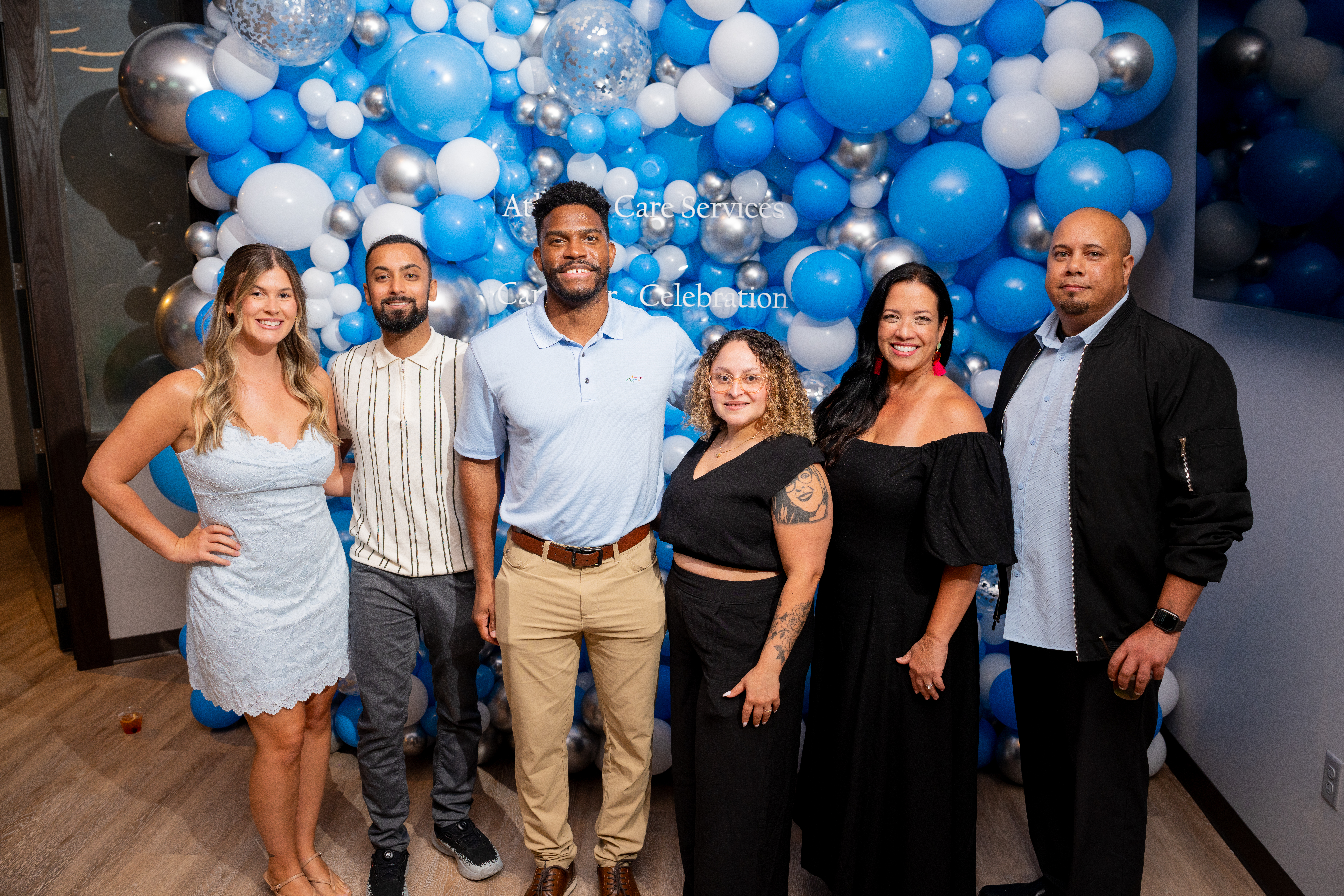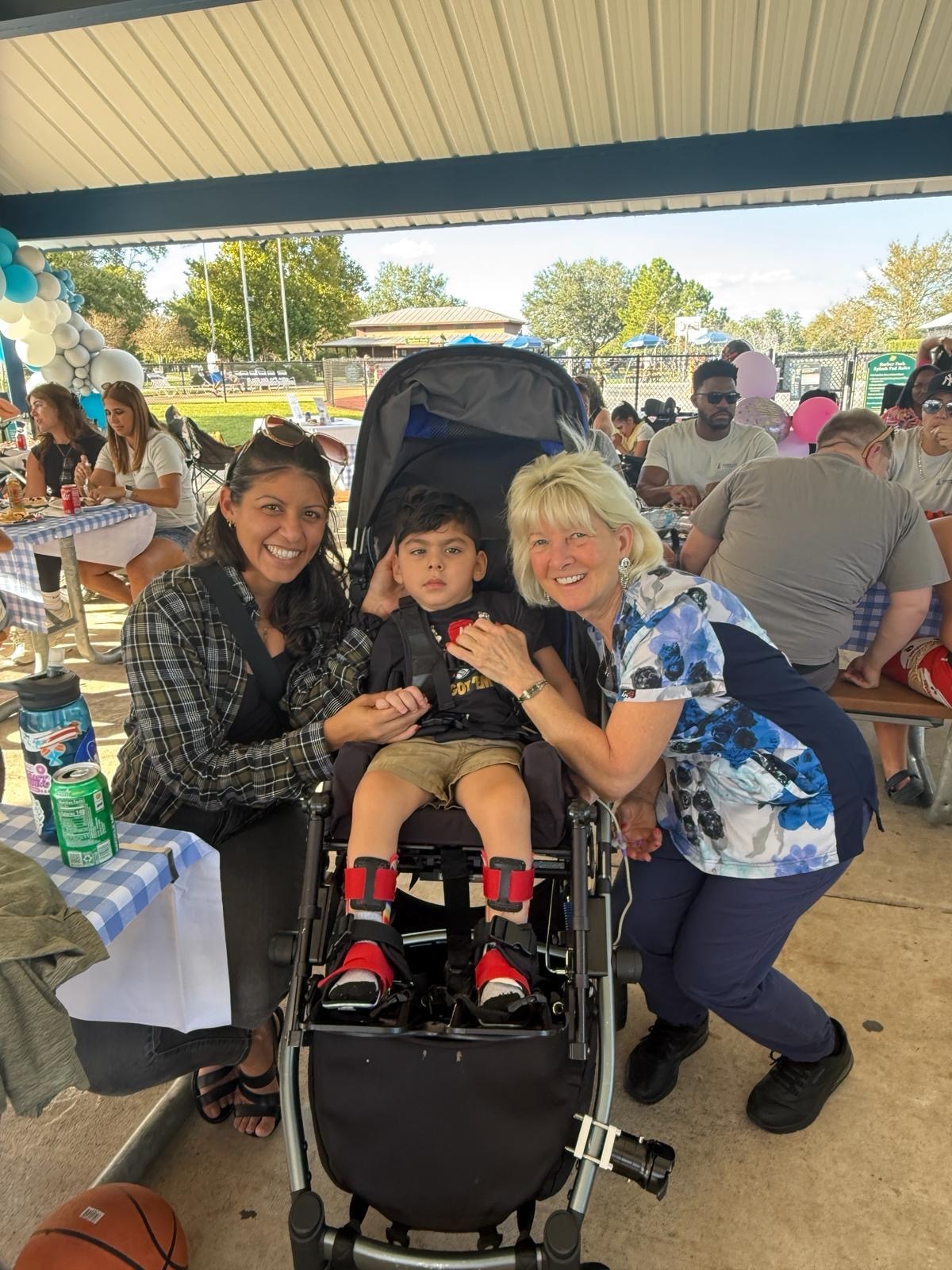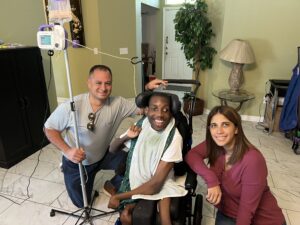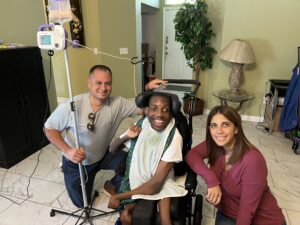Pediatric home health care services can be the comforting, compassionate answer you’re looking for. Learn how our caring team can serve your family.
Deciding how to care for a child with complex medical needs is one of the most important choices a family can make. For many families, pediatric home health care services provide a level of support, comfort, and stability that can be difficult to achieve in institutional settings.
Whether children have ventilators, tracheostomies, feeding tubes, or other ongoing medical needs, home care allows families to keep their children safe and supported in the familiar environment they love most.
At Atlantic Care Services, our pediatric in-home nursing care is designed to meet the unique medical needs of children while promoting comfort, stability, and quality of life. Here’s how home health care supports medically complex children and their families.
What is Pediatric Home Health Care?
Pediatric home health care services encompass skilled nursing and advanced medical support delivered in the child’s home. Unlike facility-based care, home health care focuses on customized, continuous care from highly trained nurses who work one-on-one with families.
At Atlantic Care Services, our private duty nursing teams care for children from newborns to young adults. Nurses are trained in advanced skills such as ventilator management, tracheostomy care, and gastrostomy tube support — all essential for children with complex medical needs.
Benefits of Home-Based Pediatric Care
Personalized, Family-Centered Care
Home health care gives parents and children the advantage of deeply personalized support. Nurses work closely with families to tailor care plans that reflect the child’s routines, medical conditions, and comfort preferences. This continuity helps reduce stress for both the child and caregivers, allowing trust and confidence to grow over time.
Expertise with High-Tech Medical Needs
Children with complex conditions often depend on advanced equipment and treatments. Home health nurses at Atlantic Care Services are specifically trained to manage:
- Ventilators and respiratory support
- Tracheostomy care and maintenance
- Gastrostomy tube feedings
- Medication administration and monitoring
Because these nurses regularly work in the home environment, they are adept at adapting clinical care with sensitivity and precision across different settings.
Comfort and Familiarity
Research and family experience show that children often do better emotionally and behaviorally when they remain at home rather than in unfamiliar facilities.
Staying in familiar surroundings can reduce anxiety, support daily routines, and help children remain connected to siblings, pets, and their regular lives — all factors that contribute to overall well-being.
Reduced Hospitalizations and Emergencies
When a child’s care is coordinated and delivered consistently at home, early signs of trouble can be identified more quickly. This can lead to fewer hospital visits and better long-term stability, as families and nurses work together to monitor health and intervene proactively when needed.
Enhanced Family Support
Home health care also empowers families by giving them tools and knowledge to participate in their child’s care. Nurses educate caregivers on best practices, safety protocols, and how to respond when medical needs change. This education helps families feel confident and supported, not just during nursing visits but in daily life.
Who Benefits Most from Pediatric Home Health Care?
Children who may benefit from home health care for medically fragile children include those who:
- Require continuous medical supervision or specialized equipment
- Have chronic or progressive medical conditions
- Experience frequent hospital visits or complex care transitions
- Need regular therapy alongside clinical support
This model of care supports children with a wide range of diagnoses and can be tailored to meet each child’s unique medical and developmental needs.
How Atlantic Care Services Helps
At Atlantic Care Services, our pediatric nursing teams combine clinical expertise with compassionate care. Our nurses are skilled in both pediatric and complex medical care, providing families with support that keeps their children safe, healthy, and thriving at home. We focus on:
- Advanced clinical training for nurses
- Collaborative care planning with families and providers
- Reliable communication so caregivers always feel supported
- A compassionate approach to each child’s unique needs
By delivering care in the home setting, we help children receive the right level of support where they are most comfortable — with their family.
Frequently Asked Questions
What is pediatric home health care?
Pediatric home health care includes skilled nursing, medical support, and monitoring provided in a child’s home rather than in a hospital or facility. It is ideal for children with complex and ongoing medical needs.
How does pediatric home health differ from hospital care?
Hospital care is typically episodic and facility-based, while pediatric home care provides continuous, personalized attention in the child’s primary environment, supporting both medical and emotional needs.
Can home health nurses manage high-tech equipment?
Yes. Home health nurses are trained to manage ventilators, tracheostomies, feeding tubes, and other specialized equipment needed by children with medical complexity.
Does insurance cover this type of care?
Coverage varies by plan. Atlantic Care Services accepts a variety of insurance and Medicaid Managed Care programs for pediatric nursing services. Contact our team to confirm eligibility and coverage details.
How do I get started with pediatric home health services?
Families can reach out to Atlantic Care Services directly to discuss their child’s needs, develop a care plan, and begin services with trained nursing professionals.
Ready to Learn More?
If your child has complex medical needs and you’re exploring pediatric home health care services, Atlantic Care Services is here to help. Contact us today to learn how skilled in-home nursing care can support your child’s health, comfort, and quality of life — all within the familiar environment of home.




















